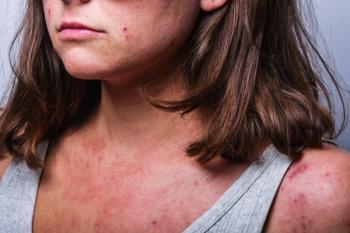
Top 5 pediatric health headlines you missed in June 2025
Take a quick look at everything you may have missed last month, including the top FDA approvals and latest clinical updates.
June 2025 delivered several major developments shaping the landscape of pediatric health, prevention, and clinical practice.
From new vaccine recommendations and monoclonal antibody approvals to updated clinical guidance on developmental disorders and adolescent contraception, this month’s news reflects both scientific progress and the shifting public health policy environment. Emerging research also sheds light on the impact of low-level lead exposure on academic performance, raising questions about current thresholds for intervention.
In this monthly recap, Contemporary Pediatrics highlights the most significant regulatory decisions, clinical recommendations, and study findings affecting pediatricians and the children they care for.
Click on each title below for in-depth coverage of these key stories.
1. ACIP updates: Committee recommends clesrovimab for RSV, reaffirms routine influenza vaccination
At its June 25-26 meeting, the CDC’s Advisory Committee on Immunization Practices (ACIP) voted to recommend Merck’s newly approved monoclonal antibody clesrovimab (Enflonsia) to protect infants aged 8 months and younger from RSV if not covered by maternal vaccination. The committee also voted to include clesrovimab in the federally funded Vaccines for Children program. Additional decisions included reaffirming annual influenza vaccination for individuals aged 6 months and older, and recommending that children and pregnant women receive single-dose, thimerosal-free flu vaccines for the 2025–2026 season. Final approval of the RSV recommendation awaits sign-off from HHS Secretary Robert F. Kennedy Jr.
2. AAP updates guidance on genetic testing for developmental delay
The American Academy of Pediatrics (AAP) has released updated clinical guidance to help pediatricians evaluate genetic causes of global developmental delay and intellectual disability. The report outlines a stepwise approach starting with a phenotype-driven assessment, followed by tiered genetic testing, including genome or exome sequencing as first-line tools. Additional tests and newer technologies are addressed for more complex cases. The guidance emphasizes early diagnosis for improved care, access to resources, and informed family planning, while underscoring the importance of pretest counseling and collaboration with subspecialists.
3. AAP updates guidance on contraception for adolescents
The AAP has updated its guidance on contraceptive care for adolescents, urging pediatricians to provide comprehensive, developmentally appropriate counseling and access to the full range of contraceptive methods. Published in the July 2025 issue of Pediatrics, the policy emphasizes confidentiality, shared decision-making, and adolescent autonomy. It calls for pediatricians to initiate one-on-one conversations, remain informed about state consent laws, and expand access through telehealth and school-based services. The guidance also integrates contraceptive counseling with STI screening, HPV vaccination, and education on healthy relationships to support holistic adolescent care.
4. FDA approves clesrovimab to protect infants during first RSV season
On June 9, 2025, the FDA approved Merck’s monoclonal antibody clesrovimab (Enflonsia) to protect infants from RSV during their first season of exposure. The approval was based on positive results from the CLEVER and SMART trials, showing strong efficacy in reducing RSV-associated hospitalizations and severe infections by over 84% and 91%, respectively. Administered as a single, non–weight-based intramuscular dose, clesrovimab offers extended protection for up to five months. Unlike existing monoclonals, clesrovimab targets a distinct protein site present in both forms of RSV, enabling broad neutralization of RSV A and B strains.
5. Study: Even low lead exposure in early childhood tied to academic decline
A large Iowa-based cohort study published in JAMA Network Open found that early childhood blood lead levels below the CDC’s reference value of 3.5 µg/dL were associated with consistent declines in math and reading scores from grades 2 through 11. Analyzing data from over 300,000 children, researchers observed that even a 1-unit increase in lead levels under the threshold led to measurable academic declines—comparable to those seen at higher lead levels. The findings suggest that current intervention thresholds may underestimate the risks associated with low-level lead exposure, highlighting the need for a reevaluation of public health policies.
Newsletter
Access practical, evidence-based guidance to support better care for our youngest patients. Join our email list for the latest clinical updates.






